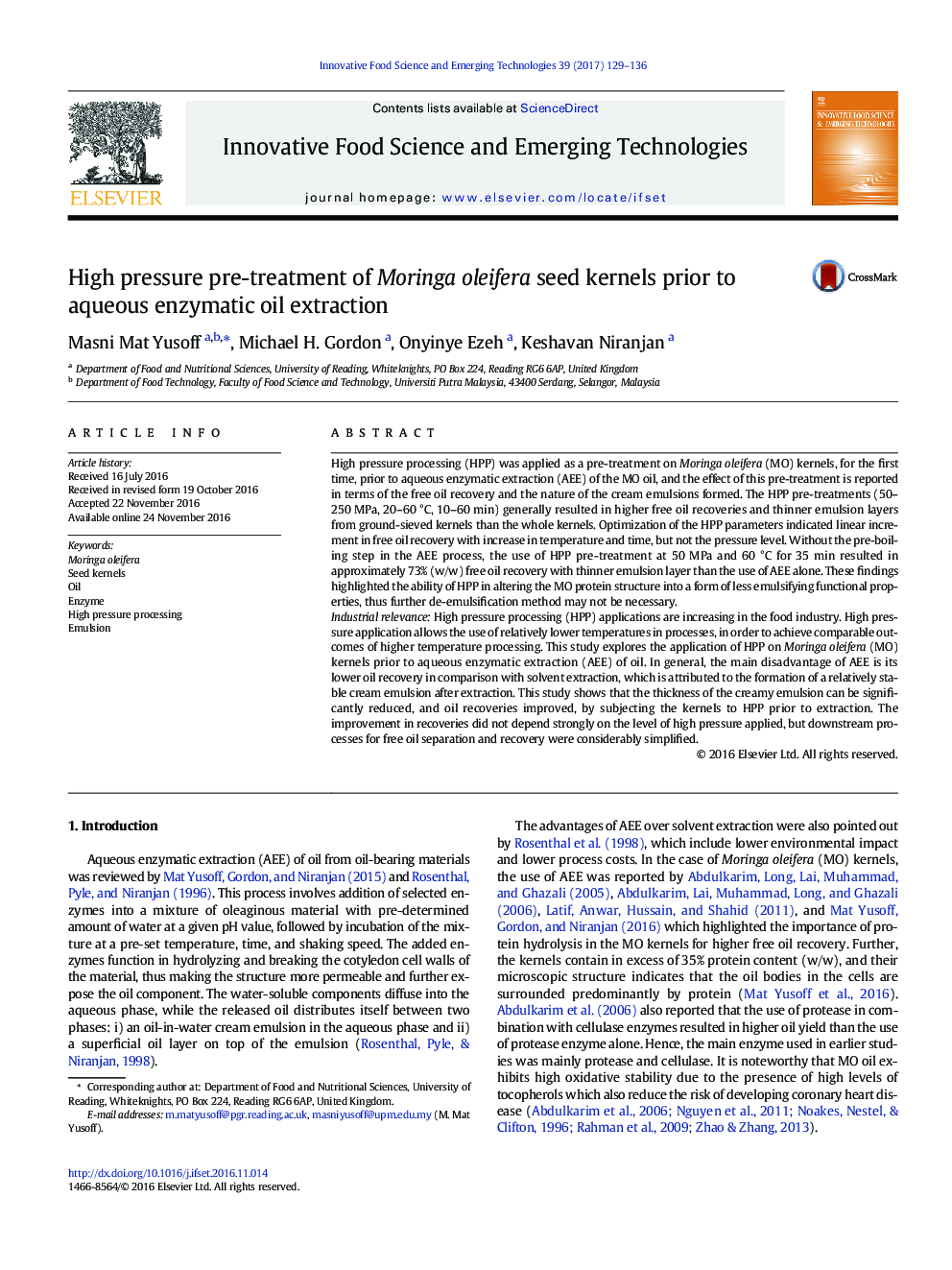| کد مقاله | کد نشریه | سال انتشار | مقاله انگلیسی | نسخه تمام متن |
|---|---|---|---|---|
| 5521856 | 1545529 | 2017 | 8 صفحه PDF | دانلود رایگان |
- Oil recovery is not significantly affected by pressure applied.
- Increase in time and temperature of high pressure application increase oil recovery.
- The thickness of creamy o/w emulsion formed after extraction drops significantly.
High pressure processing (HPP) was applied as a pre-treatment on Moringa oleifera (MO) kernels, for the first time, prior to aqueous enzymatic extraction (AEE) of the MO oil, and the effect of this pre-treatment is reported in terms of the free oil recovery and the nature of the cream emulsions formed. The HPP pre-treatments (50-250 MPa, 20-60 °C, 10-60 min) generally resulted in higher free oil recoveries and thinner emulsion layers from ground-sieved kernels than the whole kernels. Optimization of the HPP parameters indicated linear increment in free oil recovery with increase in temperature and time, but not the pressure level. Without the pre-boiling step in the AEE process, the use of HPP pre-treatment at 50 MPa and 60 °C for 35 min resulted in approximately 73% (w/w) free oil recovery with thinner emulsion layer than the use of AEE alone. These findings highlighted the ability of HPP in altering the MO protein structure into a form of less emulsifying functional properties, thus further de-emulsification method may not be necessary.Industrial relevanceHigh pressure processing (HPP) applications are increasing in the food industry. High pressure application allows the use of relatively lower temperatures in processes, in order to achieve comparable outcomes of higher temperature processing. This study explores the application of HPP on Moringa oleifera (MO) kernels prior to aqueous enzymatic extraction (AEE) of oil. In general, the main disadvantage of AEE is its lower oil recovery in comparison with solvent extraction, which is attributed to the formation of a relatively stable cream emulsion after extraction. This study shows that the thickness of the creamy emulsion can be significantly reduced, and oil recoveries improved, by subjecting the kernels to HPP prior to extraction. The improvement in recoveries did not depend strongly on the level of high pressure applied, but downstream processes for free oil separation and recovery were considerably simplified.
Journal: Innovative Food Science & Emerging Technologies - Volume 39, February 2017, Pages 129-136
